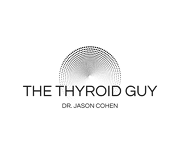This year, it’s estimated that more than 95,000 people will be diagnosed with colon cancer, and around 50,000 people will die from the disease. Colon cancer is the second leading cause of death in men and women in the U.S., and it is also the third most common form of cancer.
While 90% of new cases of cancer are often diagnosed in those who are age 50 or older, the disease can impact anyone, depending on the number of risk factors that apply to you. Here are the top colon cancer risk factors that you’ll want to know about.
Age aside, there are many risk factors that you’ll want to be aware of. If these risk factors apply to you, it’s important to undergo routine screening as early as possible. This helps to ensure the condition can be caught early and properly treated before it spreads.
Family History: Your family history of colon cancer plays a large role in your risk of also being diagnosed with the disease. According to the Colorectal Cancer Alliance, if one of your first-degree family members, such as a parent or sibling, has colon cancer, you have a two to three times higher risk of also developing the disease.
Poor Diet: What you eat plays a huge role in your overall health. If you consume a lot of red meats, such as pork, beef, or lamb and eat a lot of processed meats like deli meat and hot dogs, you increase your risk of colon cancer.
A lack of fiber and other important nutrients may also increase your risk of developing colon cancer.
Smoking & Drinking: Most people know that smoking commonly causes lung cancer, but the bad habit has also been linked to other cancers, including colon cancer. Long-time smokers have an increased risk of developing colon cancer compared to non-smokers.
Heavy alcohol consumption has also been linked to colon cancer. Moderate to heavy alcohol use is defined by having more than two drinks a day.
Other Health Conditions: Certain health conditions, such as Crohn’s disease, ulcerative colitis, Lynch syndrome, and inflammatory bowel disease, all increase the risk of colon cancer. A personal history of polyps is another risk factor that can raise the risk of developing this type of cancer.
Being Overweight or Obese: Your weight impacts your body in many ways. If you’re overweight or obese, you have a much higher risk of developing the disease. Mortality rates are also higher in those who are overweight or obese. Having a large waistline increases the risk of colon cancer in both men and women, but studies have found that the link appears to be more common in men.














